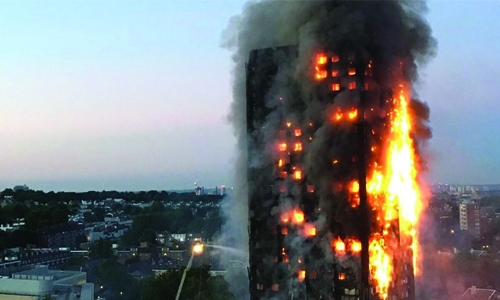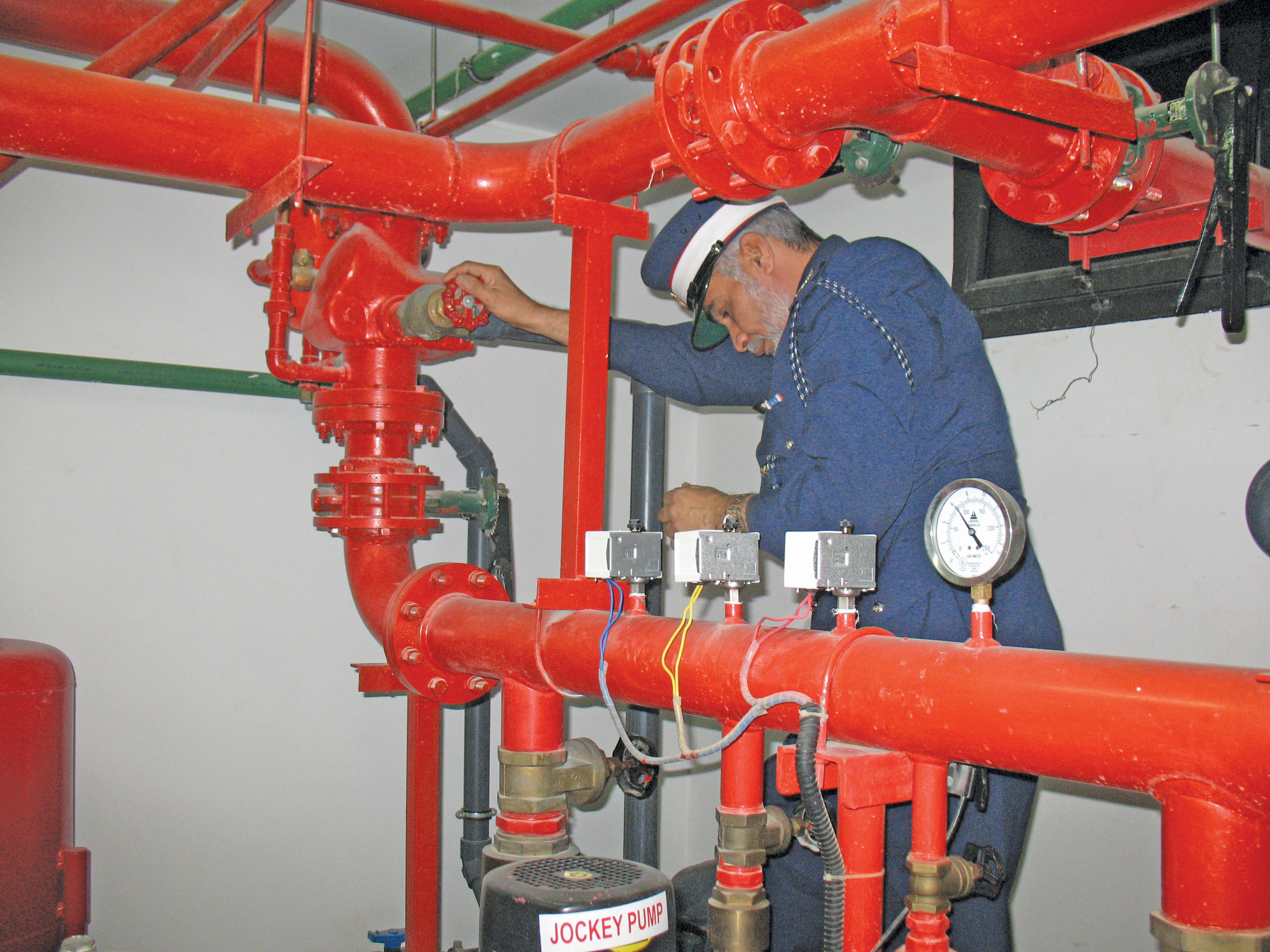With a little care, we can stop this
Manama : Poor-quality materials which do not follow international system or code are one of the most important reasons for incidents of fires in the external cladding of high-rise buildings, a top Bahraini expert has warned.
Director of Protection and Safety at the General Directorate of Civil Defence, Col. Hamad Al Kaabi, referring to the incidents of fires in the external cladding of high-rise buildings, also warned against the use of unqualified workers.
The eruption of fire and rapid spread of flames, the director pointed out, were mostly due to poor quality maintenance works involved, for instance in welding.
“Restaurant chimneys, under the cladding, could spark a fire after long exposure to smoke and heat. Faulty electrical wiring under them could also lead to mishaps,” Al Amn magazine quoted Col. Al Kaabi as saying.
He also pointed out that electrical wires should be installed inside a metal or plastic pipes, which will act as a protective cover.
According to him, Maintenance work that involves welding may also cause a fire in the inflammable polystyrene lining of the cladding.
He warned that poor-quality cladding could spread the flames fast through the windows and balconies.
How to chose correct material?
Col. Hamad Al Kaabi said those who are looking forward to installing a cladding should contact the General Directorate of Civil Defence to learn about quality products and accredited types in the market.
He told the magazine that the directorate has a committee to inspect high-rise buildings and provide safety instructions to owners of those buildings.
Any punitive measures?
In case substandard materials are found to be used, the owner will be given a 30-day notice to rectify the situation. In this regard, Al Kaabi pointed out that the committee inspected 240 buildings in September and October last year - 110 in Hidd and 130 in Manama.
When asked about fire incidents involving cladding in the Kingdom, Al Kaabi said, in 2013, an 11-storey building in Juffair was engulfed in fire. Maintenance operations conducted by workers with welding units near gas pipelines caused the mishap.
Mulls new law
Col. Al Kaabi said the directorate is planning to develop a new legislation to control the installation of external and internal cladding in coordination with the GCC countries.
Safety precautions
He stressed the importance of safety installations in buildings, such as fire-resistant doors, fire-alarm systems, fire-extinguishers and water hoses.
What is cladding?
In many cases, architectural designs of public or private buildings call for the mounting of cladding for decorative, constructional or technical purposes.
The cladding material may vary and some of it is mounted to resist heat and humidity, absorb sound or reflect the light.
The cladding involves the application of one material over another to provide a skin or layer. In construction, the cladding is used to provide a degree of thermal insulation and weather resistance for the buildings and to improve their appearance. The material used for cladding includes wood, metal, brick and vinyl as well as composite material that may include aluminium, wood, blends of cement and recycled polystyrene, and wheat/rice straw fibre.
The cladding itself does not need to be waterproof. It is only a control element which may serve to deflect water or wind safely and control any run-off and prevent its infiltration into the building structure. Cladding may also help control noise from either entering or escaping a building.
Different types of cladding
There were two types of external and internal cladding. The first is the American 285Nfpa which is fire-resistant with slow ignition and second is the Saudi SASO-2752. Al Kaabi urged to choose the cladding which meets the standards of the US, European or Saudi systems. The latter is similar to the American system in terms of specifications and is accredited by international labs for preventing fires and accidents.
Best options for external cladding
Aluminium sheets should be flat, stable, light, with a soft surface, resistant to shocks or decay, easy to fix and maintain and easy to cut.
Al Kaabi said Alushine aluminium sheets were the best option for external cladding and as well as interior designs. The aluminium sheets are also recyclable and can be used to manufacture other material.
Related Posts



